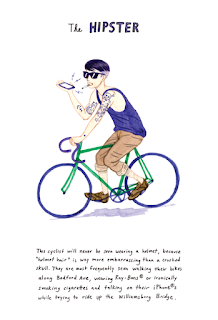This weekend began quite lovely, if rather
chilly. Now, if that sentence sounds
impossibly Victorian, or at least British, so be it. There is something languorous, in a pre-war
sort of way, about Memorial Day weekend, which many in the US regard as the beginning
of summer.
The sky has been almost preternaturally bright, as
if breezes were brushing away every trace of clouds. It also pushed away heat, which I don’t mind
in the least. Temperatures of 15 to 20 C
(60 to 68 F) are, to me, all but ideal for cycling. But it’s not exactly beach weather—at least
to most people—and the water temperatures are around 13C (55F).
So, I figured that people wouldn’t go to the
beach—which meant it would be a good day to ride to Point Lookout. Or so I thought.
The ride itself was pleasant enough. I encountered a bit more traffic than I
anticipated, and on summer days—in fact or in name only—it’s never too early in
the day for drunks to spill out of the Long Beach bars. If anything, I saw a few more inebriates than
usual, for the college students had just come home. A group of them played “chicken” with me,
thrusting their faces into my path to see how close they could come to getting
smacked by my helmet.
The beaches and boardwalks were full of
people. A few dipped themselves in the
water; a few donned wetsuits and surfed.
At Point Lookout, as you see in the photo, people propped themselves on
the cinderblocks or on beach chairs to watch airplanes make squiggles and bows
with their vapor trails.
Shows like that aren’t my kind of thing. My father loved them, so I saw lots of them
when I was growing up. So, while I
respect the skills the pilots of those planes have, I’m not enraptured by frivolous
displays of bravado. More important,
though, I don’t like the message behind those shows. Most people—at least, the ones I saw at the
show-- seem to believe it’s “Support Our Troops”. Having a brother in the Armed Forces, I’m all
for “supporting” them. However, I don’t
want to throw them in harm’s way for no good reason—or, worse, for them to be
used to celebrate our ability to make war.
After two of the planes made a heart or something
with the vapor trails, I hopped back on my bike. The wind blew off the ocean and at my left
side until I got to Rockaway Beach, where I turned right. From there, the wind carried me home under
blue skies, away from the vapor trails.








